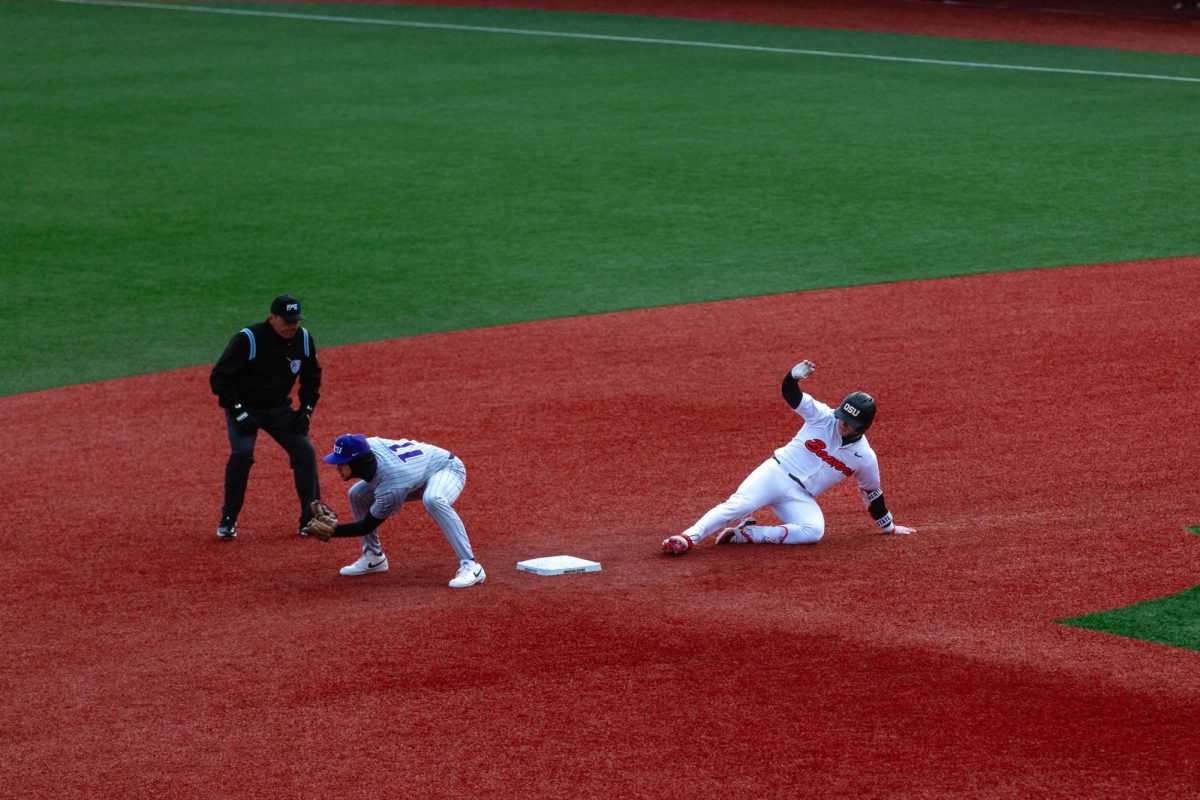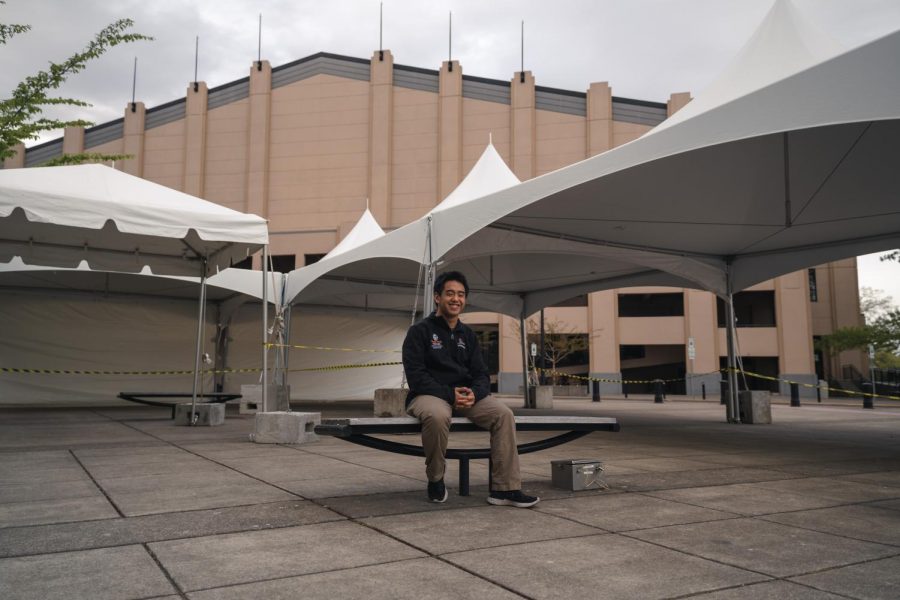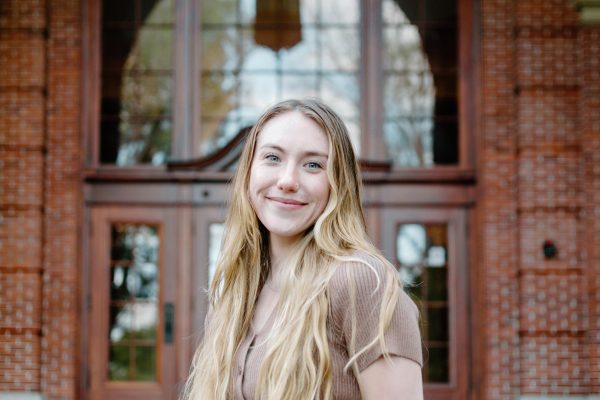LeCocq: OSU Extension Services is educating Oregonians about COVID-19 vaccine access, listen to them
April 25, 2021
Editor’s Note: This column does not represent the opinion of The Daily Barometer. This column reflects the personal opinions of the writer.
Since information about COVID-19 and its various vaccines is widespread, it has raised questions among college students and community members alike about vaccine eligibility and access.
Concerns regarding the COVID-19 vaccine have been heightened among college students who are navigating differences in eligibility between their home state and Oregon, as well as determining what information is relevant to them as typically healthy young people have not prioritized for recieving a vaccine dose.
One group working to clarify information about COVID-19 and vaccines for Oregonians is the Oregon State University Extension Services.
Extension Services have been partnering with counties all across Oregon to spread evidence based, up-to-date information to community members.
“Extension’s county web pages have been enhanced to ensure [the] provision of evidence-based educational information on COVID-19 vaccine and ongoing containment measures, as well as connecting community members to local links for vaccine eligibility and scheduling,” Richard Riggs, the Western Regional Director of OSU Extension Services, said via email.
Riggs also credits the many community partners participating through hosting vaccine sites, volunteers and medical staff in each county for the success of quickly progressing state-wide vaccinations.
While the Extension Services acts as a communication vessel for the greater community, Oregon State students, in particular, seem to still get lost in the mix between Extension Services and on-campus vaccination events or even county health sources.
One OSU student expressed his own confusion when it comes to the topic of who manages what aspect of vaccines. Dave So, a mechanical engineering graduate student said, “I knew that the state was doing vaccine clinics, but was not aware for a while how it worked in Corvallis [Ore.]”
So only became aware of his opportunity to get vaccinated by word of mouth and landed a highly coveted position volunteering at the Reser Stadium mass vaccination clinic on the OSU Corvallis campus.
“Early on, volunteer positions would go super fast (within five minutes of being made available). It took me a few weeks to be fast enough to sign up, but I was able to get a spot to volunteer… Most of the volunteers who wanted a shot were also able to get it too including myself. [However,] it was not guaranteed,” So said.
This is not the norm for most. Extension Services staff have been quick and clear to distinguish their work from on-campus vaccination efforts. Extension Services goals are in “efforts to educate the communities we serve,” not to participate in vaccine distribution.
This goal alone, however, does have its fair share of challenges. According to Riggs, the biggest challenge is in increasing knowledge spread across all regions of the state.
“Many of the rural communities we serve have ongoing issues with local broadband internet access, which creates challenges for people to access information and to make appointments for their vaccines,” Riggs said.
So sees a similar challenge when considering access to the correct knowledge.
“So much of vaccines, from availability to questions about safety and effectiveness, seems to be conveyed via word of mouth,” So said.
This word of mouth may be the main communication vessel for college students and more rural communities in Oregon, but speculation and misinformation can spread quickly
While So jumped on the chance to receive his shot early, he is familiar with those who remain hesitant.
“I have friends who are just waiting for [April]19. With COVID-19 being such a common conversation, vaccine awareness is widespread. Anyone who wants to know how to get their shot can just ask a friend who posted the obligatory CDC vaccine card on their social media stories,”So said. “One thing which is very tricky is the population who does not feel the need to get vaccinated. I know plenty of people who either have questions about long-term safety or who just don’t feel the need to be vaccinated.”
OSU Extension Services has done a great deal of work to combat these notions through bringing in local perspectives to extend reach in specific counties and creating new educational resources.
“For example, in Lincoln County, OSU Extension [Services] has worked in coordination with a local community partnership, Juntos en Colaboración, to develop videos in Spanish and Mam to reach community members who speak these languages,” said Marion Ceraso, an OSU College of Public Health and Human Sciences professor of practice working with Extension Services.
In the face of all these challenges, more and more Oregonians have begun receiving their vaccines. In large part due to the Extension Services work, Riggs remains hopeful that their efforts will continue to help partnered counties.
“[Extension]… is happy to help educate and promote efforts that lead to greater public health in the communities we serve,” Riggs said.
So also remains hopeful that the correct information will float its way through the student population, and said “I think within all my peers, anyone who wants [a vaccine]has a pretty good idea of how to get one, and it’s just a matter of how urgently they want it.”
To learn more about the OSU Extension Services work and county-specific vaccine information, visit https://covid.oregonstate.edu/. As of April 19, all Oregonians 16 and older are eligible to receive COVID-19 vaccination.


















































































![Newspaper clipping from February 25, 1970 in the Daily Barometer showing an article written by Bob Allen, past Barometer Editor. This article was written to spotlight both the student body’s lack of participation with student government at the time in conjunction with their class representatives response. [It’s important to note ASOSU was not structured identically to today’s standards, likely having a president on behalf of each class work together as one entity as opposed to one president representing all classes.]](https://dailybaro.orangemedianetwork.com/wp-content/uploads/2025/03/Screenshot-2025-03-12-1.00.42-PM-e1741811160853.png)

























